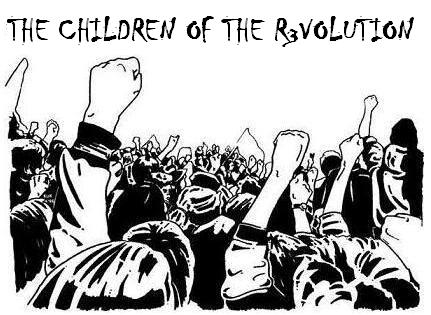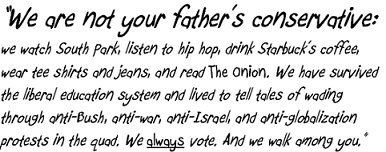BY CINCINNATUS
this (with poorly disguised glee) discussing the Senate’s failure to reach a deal on the auto bailout last night, I am struck by an underlying premise that has sadly become embedded in our national consciousness, perhaps without many even knowing it. It has become amplified by our government and media’s current “crisis mode” operating procedure, in which the instrument of fear is used to convince the American people that, if somebody doesn’t do something this instant, the world will start burning tomorrow morning. That premise is that, if something’s wrong, the federal government has to take action and fix it. I’m not sure exactly when this became a generally accepted practice, though I discuss it in some detail in A Republic Corrupted as one of the greatest corrosive elements in our modern American society. But whenever it started, it’s got to stop.
When measures, particularly measures like this auto bailout, come before Congress, there is naturally a debate that ensues between the two parties. As a result of ideology but more often political posturing, there will be a major disagreement. When this disagreement stalls the progress of whatever bill is hurtling toward the president’s desk, the ruling party of the House/Senate will invariably ask, “well if you don’t like it, then come up with an alternative.” The implication is that the alternative be an alternative bill or an amendment to the existing legislation. For some reason, politicians never seem to feel comfortable answering that challenge by saying “doing nothing is better than doing this” or, more appropriately, “we shouldn’t even be involved in providing a solution to this problem.” 9 times out of 10, the latter response is the correct answer.
But with our economy in turmoil and two wars ongoing overseas, politicians in our federal government are turning the screws and applying pressure to the American people, telling them that we can’t afford to sit idly by while our society crumbles around us. So in an effort to grab some short-term political points, the politicians clamor to solve the problem for us and trip over one another until they reach some sort of compromise that is merely a cobbling together of two opposing goals and therefore doomed to failure. But, hey, somebody had to do something, anything! We couldn’t just stand around. The reader will note that this operating procedure conveniently has the consistent end result of taking more of the taxpayer’s money while expanding federal power. Lao Tzu, the ancient Chinese philosopher and founder of Taosim, once said “The greater the number of laws and enactments, the more thieves and robbers there will be.” Well, in our American republic, it just so happens that the thieves and robbers are the ones making the laws.
But while it’s fun to blame to politicians, there’s plenty of it to go around, and most of it lies squarely on our shoulders. We are the ones who buy into their fear-mongering. We are the ones who wring our hands and demand that Congress save us all before it's too late. We are the ones who get indignant and petulant when Congress fails to take action during a crisis. We are the ones who seem to be incapable of coping with short term losses for long term prosperity and the preservation of our liberty. A favorite quote of mine from Ronald Reagan is: “We defend freedom here or it is gone. There is no place for us to run, only to make a stand. And if we fail, I think we face telling our children, and our children's children, what it was we found more precious than freedom. Because I am sure someday - if we fail in this - there will be a generation that will ask.” So what will we tell our children when they ask us why we repeatedly ceded our liberties to the government? Will we say, “well if you had only been there, you would have understood how scary and uncertain things were”? Or perhaps we’ll plead ignorance and say, “how were we to know that the bailouts would lead us here?" But if we are to be honest with ourselves, we will say simply, “we chose our own financial and personal security over our essential liberty.”
12.12.2008
Subscribe to:
Post Comments (Atom)








3 comments:
It's maddening. Every time there is a crises the discussion revolves around "How is the government going to fix this!" with no mention of the more important issue: "Should the government be involved in this at all?"
Well, littleCog, I would agree. The only way we will change the minds of our fellow Americans, though, is by making simple arguments for real alternatives that have provable results. It's well and good for us to rant and rave (and a step in the right direction), but until we can start articulating the alternatives as clearly as the problems, we're going to be spinning our wheels while the nationalists march on by.
Yes, Hariolor, but what about when the solution is to do nothing about an existing problem? How is that articulated in our current political climate? Unfortunately, that answer is unacceptable to the American public as a whole, and certainly to its government. But sadly it's more often than not the right answer.
That having been said, I agree that well-reasoned alternatives to government intervention are needed where possible or we all just look like armchair quarterbacks and second-guessers.
Post a Comment